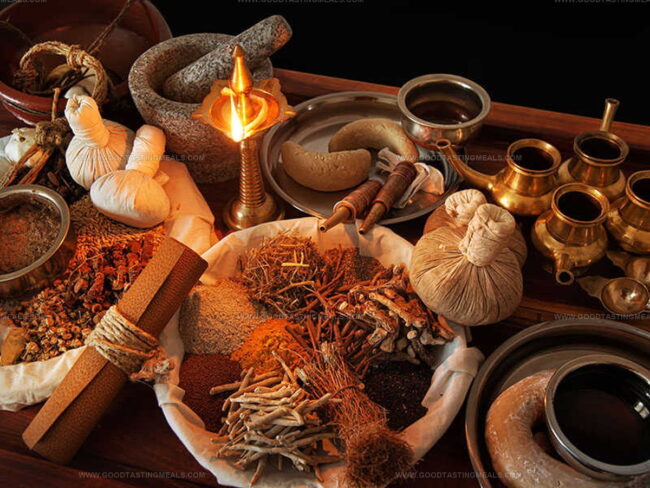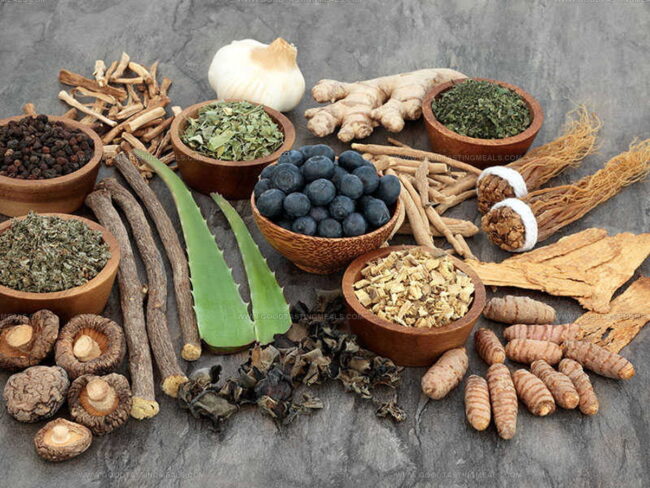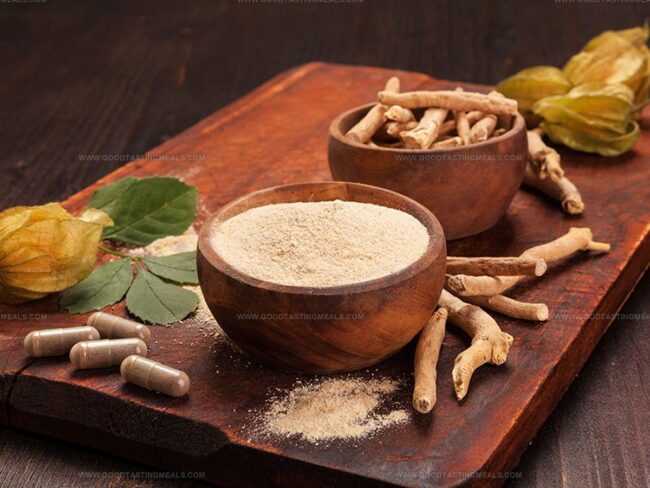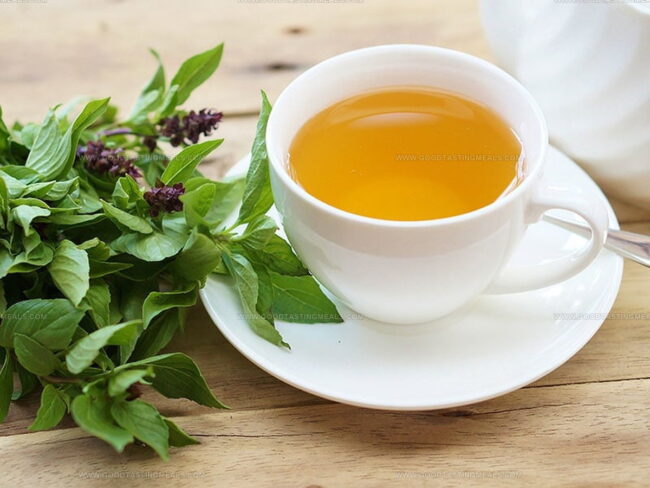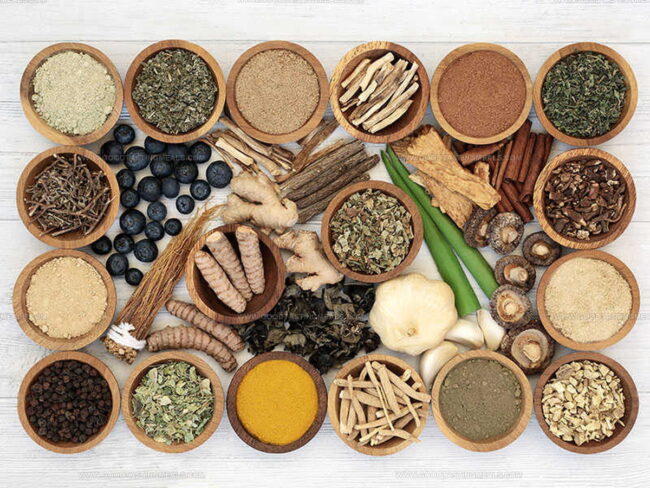Holy Basil or Ashwagandha: Best Herbal Pick for You
Holy basil has gained popularity as a traditional herbal remedy with remarkable healing properties.
This ancient herb from India offers numerous potential health benefits for anyone looking to enhance their wellness routine.
The natural compounds in holy basil may help reduce stress and improve mental clarity during challenging times.
Many people find that regular use supports their immune system when seasonal threats appear.
Scientific research continues to validate what traditional medicine practitioners have known for centuries about this powerful plant.
Both novice and experienced herbal enthusiasts can appreciate its gentle yet effective nature.
Are you ready to learn how holy basil might fit into your daily health practices?
What is Ayurveda?
Ayurveda, meaning “knowledge of life,” is a traditional medical system from India that links the body, mind, spirit, and environment. Practiced for over 3,000 years, it views illness as an imbalance caused by stress, suppressed natural urges, or disrupted consciousness - for example, stopping a sneeze may cause shoulder pain.
Ayurveda centers on maintaining balance rather than unchecked impulses, aiming to reduce stress, boost immunity, cleanse the body, and promote harmony.
This is achieved through internal purification, special diets, herbal medicines, yoga, meditation, and massage, with adaptogenic herbs like holy basil and ashwagandha playing key roles.
Holy Basil: The Overview
Holy basil, or tulsi (Ocimum tenuiflorum), is an aromatic subshrub from the Lamiaceae family and one of over 50 basil varieties worldwide. Native to the Indian subcontinent, it’s widely grown across Southeast Asia.
The plant grows 12–24 inches tall with hairy stems and oval green or purple leaves. Its pink to purplish flowers are edible but slightly bitter.
Revered in Indian culture and Ayurveda, holy basil is considered sacred in Hinduism, symbolizing the goddess Tulsi. Often called “the queen of herbs” and “mother medicine of nature,” it is commonly grown in Hindu households throughout India.
Holy Basil vs Ashwagandha: Comparison of Ancient Herbs
Holy basil and ashwagandha share adaptogen status but differ in many ways.
This table shows you a brief view regarding their differences.
| Feature | Holy Basil (Tulsi) | Ashwagandha (Withania somnifera) |
| Origin | Native to India and Southeast Asia; sacred in Ayurveda and Hindu culture. | Native to India, Middle East, and parts of Africa; widely used in Ayurveda. |
| Appearance | Small shrub with green or purple leaves; aromatic, serrated leaf edges. | Woody shrub with green oval leaves and small orange-red berries. |
| Edible Parts | Leaves and sometimes flowers used fresh or dried. | Roots mainly used; leaves and berries also utilized occasionally. |
| Taste and Smell | Strong, spicy, clove-like aroma and taste. | Bitter and earthy taste; mild, subtle aroma. |
| Primary Utilization | Used mainly as an adaptogen, immune booster, and in teas or fresh consumption. | Primarily an adaptogen and rejuvenator; root powder or extracts used as supplements. |
| Health Benefits | Reduces stress, fights infections, supports respiratory health, antioxidant, anti-inflammatory. | Enhances stress resilience, boosts energy, improves cognitive function, supports sleep and hormonal balance. |
| Shelf Life | Fresh leaves last a few days refrigerated; dried leaves up to 1 year stored in a cool, dry place. | Dried root powder and extracts can last 1-2 years if stored properly away from moisture and heat. |
Origin
Holy basil (Ocimum sanctum), also called Tulsi, is native to India and Southeast Asia, where it holds deep spiritual and medicinal significance in Ayurveda and Hindu traditions.
Ashwagandha (Withania somnifera) also originates from India but is found across the Middle East and parts of Africa. Both have been used for thousands of years as key herbs in Ayurvedic medicine.
Appearance
Holy basil is a small, bushy shrub with green or sometimes purple leaves that have serrated edges. The plant is highly aromatic, and its leaves emit a strong clove-like fragrance.
Ashwagandha grows as a woody shrub with broader, oval green leaves and produces small orange-red berries. It has a more subdued scent compared to holy basil.
Edible Parts
For holy basil, the leaves and occasionally flowers are harvested and used either fresh or dried, often brewed into teas or used in cooking.
Ashwagandha’s medicinal value mainly comes from its roots, which are dried and powdered for supplements. Its leaves and berries are also sometimes used, but the root remains the primary focus in herbal preparations.
Taste and Smell
Holy basil is known for its sharp, spicy flavor with strong clove and pepper notes, accompanied by a pungent, aromatic smell.
In contrast, ashwagandha has a bitter, earthy taste and a much milder, less noticeable aroma, making it less prominent in sensory terms but highly valued for its adaptogenic effects.
Primary Utilization
Holy basil is widely used as an adaptogen to reduce stress and enhance immunity. It is commonly consumed as a fresh herb, dried tea, or extract.
Ashwagandha serves primarily as a rejuvenating adaptogen, often used in powdered or extract form to improve energy, cognitive function, sleep quality, and hormonal balance.
Health Benefits
Both herbs reduce stress and improve resilience, but holy basil is especially noted for its antimicrobial, antioxidant, and anti-inflammatory effects, supporting respiratory health and fighting infections.
Ashwagandha excels in boosting stamina, brain health, and endocrine function, helping with fatigue, anxiety, and sleep disorders.
Shelf Life
Fresh holy basil leaves are delicate and last only a few days refrigerated. Dried leaves, however, can be stored for up to a year in a cool, dry place.
Ashwagandha root powder and extracts are more shelf-stable, typically maintaining potency for 1 to 2 years when kept away from moisture and heat.
How to Store Holy Basil and Ashwagandha
Proper storage is key to preserving the freshness and potency of holy basil and ashwagandha. Following simple guidelines can help you extend their shelf life and maintain their health benefits.
Holy Basil Storage
Fresh holy basil leaves are delicate and highly perishable, so to keep them fresh longer, wrap them loosely in a damp paper towel and place them in a perforated plastic bag or container in the refrigerator’s crisper drawer, where humidity is higher; this can extend freshness for 3 to 7 days. Avoid washing the leaves before storing, as excess moisture speeds up spoilage.
For longer storage, freeze the leaves by spreading them out on a tray to freeze individually, then transfer them to an airtight container or freezer bag.
Dried holy basil leaves or powder should be stored in an airtight container away from heat, moisture, and direct sunlight, ideally in a cool, dark pantry or cupboard.
Properly stored, dried holy basil can retain its quality for up to a year, and using opaque containers helps protect its essential oils and medicinal properties from light degradation.
Ashwagandha Storage
Dried ashwagandha root is typically ground into powder before use and should be stored in a sealed, airtight container in a cool, dry place away from sunlight to preserve its medicinal properties.
Avoid moisture exposure to prevent clumping and mold, and use glass jars with tight lids rather than plastic bags for better protection against humidity and odors. When stored properly, ashwagandha powder can maintain its quality for 1 to 2 years.
For ashwagandha supplements and extracts, always follow the manufacturer’s storage instructions, keeping them in a cool, dry place, tightly sealed to prevent oxidation and moisture damage, and avoid storing them in bathrooms or near heat sources.
Benefits of Combination of Powerful Adaptogen
Holy basil and ashwagandha work even better when paired with other adaptogenic herbs, creating powerful health-boosting combinations. These herb pairings can be enjoyed as teas, tinctures, or capsules depending on what feels most convenient for your daily routine.
For Reducing Stress And Fatigue
Cortisol levels in your body can seriously impact how you feel each day. Too much cortisol might leave you feeling overwhelmed and anxious, while not enough can drain your energy completely.
Several natural herbs can help maintain healthy balance in your system. For high cortisol situations, a mix of ashwagandha, holy basil, bacopa monnieri and schisandra works wonders to lower those stress hormones and calm your nerves.
On the flip side, if fatigue is hitting you hard because of low cortisol, both licorice and rhodiola rosea offer excellent support to boost your energy levels and help you feel more like yourself again.
For Better Sleep Quality
Sleep plays a key role in keeping your body healthy and strong. Many people who can't fall asleep find natural herbs like ashwagandha, moringa, and schisandra very helpful for better rest.
Your bedtime routine matters too - going to bed at the same time each night trains your body when to wind down. Blue light from phones and computers can make falling asleep harder, so putting devices away a couple hours before bed helps your mind relax naturally.
Small changes to your nightly habits can lead to big improvements in how well you sleep.
For Improving Mood And Mental Health
Mind-boosting adaptogens like lions mane mushroom, American ginseng, maca, and bacopa monnieri can enhance your mental wellness in natural ways. Good brain function matters just as much as physical health for a truly happy life, so adding these powerful plant-based helpers to your daily routine makes perfect sense.
Many people find these natural options give them the mental edge they need without harsh side effects or chemicals.
For Productivity And Brain Fog
Brain fog and poor concentration can drag down your work performance in countless ways. Several factors might be causing this mental haziness, from not getting enough sleep to dealing with too much stress, skipping exercise, managing chronic health issues, or experiencing hormone changes.
Regular use of natural supplements like eleuthero, lion's mane mushrooms, and rhodiola rosea can help clear away that mental cloudiness and sharpen your focus. These natural remedies work together to cut through the fog, allowing your mind to stay alert and on-task throughout the day.
Many people notice improved mental clarity after adding these supplements to their daily routine.
For Strengthening The Immune System
Many natural adaptogens can strengthen your immune system when you keep getting sick. Astragalus works wonders for fighting off frequent colds, while ashwagandha helps reduce stress that often weakens body defenses.
Moringa offers rich nutrients that support overall health, and powerful mushroom varieties like shiitake, turkey tail, reishi, and chaga contain unique compounds that balance immune response. These plant-based helpers work gradually to make your body more resilient against illness without harsh side effects or dependency issues that some medications cause.
For More Energy Throughout The Day
Afternoon energy slumps can happen to anyone, but maca, ginseng, and rhodiola rosea work wonders as natural pick-me-ups. These powerful adaptogens help maintain steady energy levels throughout the day, so you don't crash when that mid-day fatigue hits.
Many people find these herbal supplements give them the boost they need without the jitters of caffeine. Taking them regularly may help your body handle stress better while keeping you alert and focused all day long.
No more nodding off at your desk or feeling drained by 3 PM!
For Balancing Hormones
Hypothyroidism occurs when your body lacks enough essential hormones, causing problems like hair thinning, constant tiredness, and dry patches on your skin. The good news is that several natural herbs can help manage this condition effectively.
Ashwagandha works to balance your hormone levels and reduce stress that often makes symptoms worse. Maca root supports your endocrine system while boosting energy levels that hypothyroidism typically drains.
Holy basil also plays a key role by reducing inflammation and helping your thyroid function better. These three powerful plants offer a natural way to keep thyroid issues under control without relying solely on medication.
Potential Side Effects and Precautions
Holy basil is generally safe when used in moderate amounts, but excessive consumption may cause nausea, diarrhea, or stomach upset.
Pregnant or breastfeeding women should avoid large doses, and people on blood-thinning or diabetes medications should consult a doctor before use, as holy basil can affect blood clotting and blood sugar levels.
Ashwagandha is usually well-tolerated, but high doses can cause digestive issues like upset stomach, diarrhea, or vomiting. It may also cause drowsiness or interact with sedatives, thyroid medications, and immunosuppressants.
Got Questions? We’ve Got Solutions
1. When should I take holy basil versus ashwagandha?
Holy basil works best for daily stress and mild anxiety, often taken during the day. Ashwagandha is better for deep stress, insomnia, and fatigue, typically taken in the evening.
2. Can I take holy basil and ashwagandha together?
Yes, they can complement each other well. Take holy basil in the morning for mental clarity and ashwagandha at night for better sleep. Start with low doses of each to see how your body responds.
3. Which herb has fewer side effects?
Holy basil typically has fewer side effects. Ashwagandha occasionally causes digestive upset, drowsiness, or thyroid changes in some people.
4. How long does it take to feel the effects of these herbs?
Holy basil often provides subtle benefits within 1-2 weeks of consistent use. Ashwagandha typically requires 4-12 weeks of regular use for maximum benefits.

